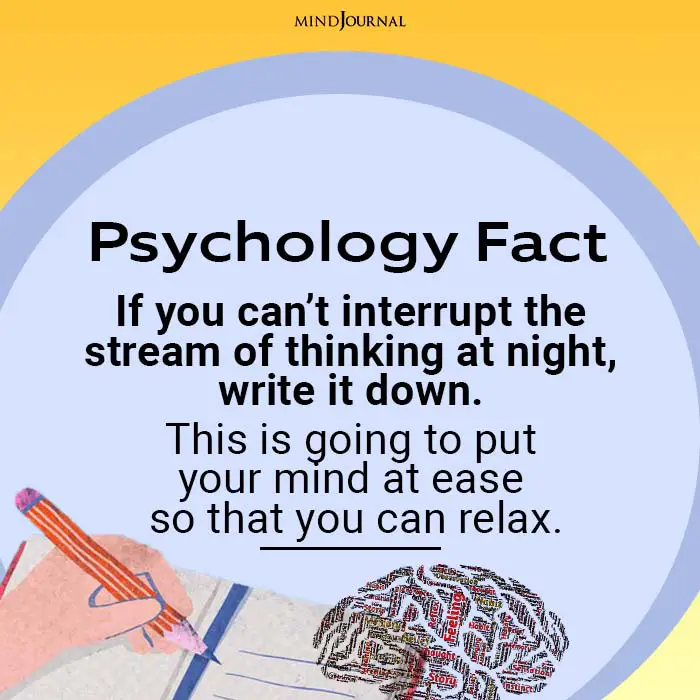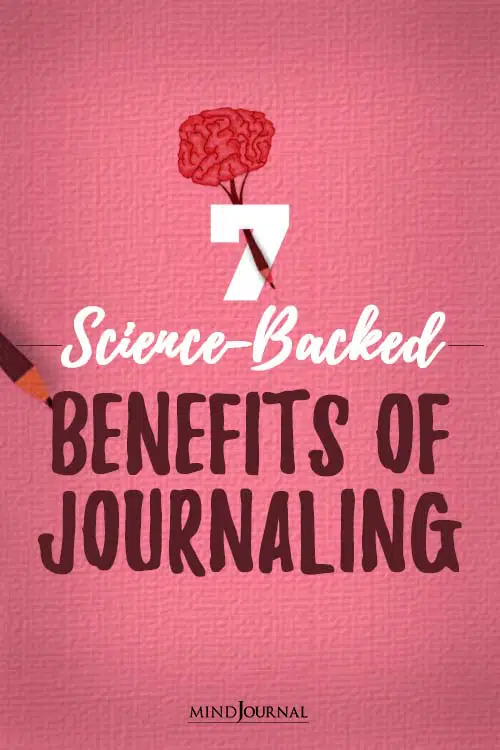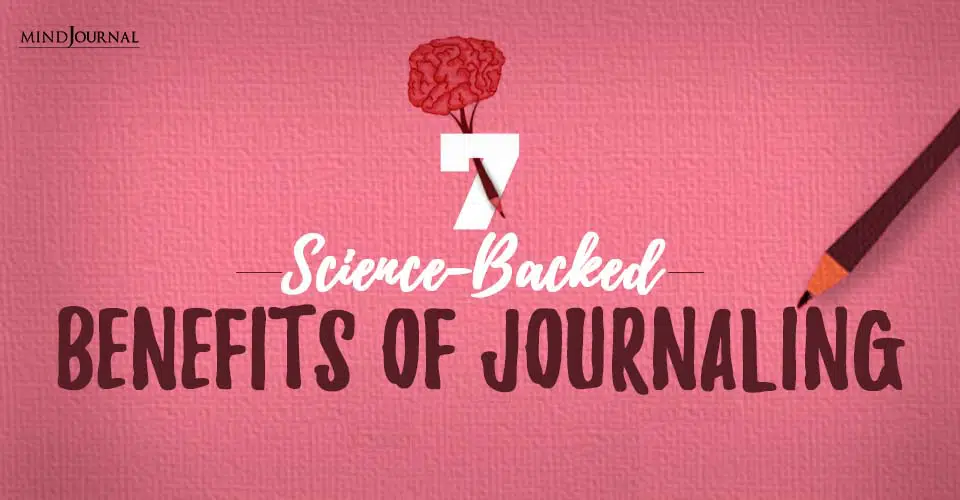Do you worry a lot? Are you feeling stuck in life? Your past is still haunting you? Don’t know how to move forward in life? Don’t how to gear up? Then, the secret to getting over this situation is JOURNALING! Read on to know the benefits of journaling and how it will help you live a healthier and happier life.
Now that word “journaling’ must have flashed the picture of one of your family members sitting in an isolated place and scribbling something very intensely on their diary that no one can access. Yes, that’s journaling – an exercise that involves writing about your current life events (happy or distressing), feelings, thoughts, response to a crisis and everything going in your mind.
Journaling is an art where you not only express your emotions but translate an experience or secret into language by penning, which makes the experience more graspable as per James W. Pennebaker, a lead researcher on expressive writing at the University of Texas at Austin.

There is striking research on the benefits of journaling or expressive writing. Read on to know what they are and if that motivates you to start journaling leave a comment below.
Here are 7 Science-Backed Benefits Of Journaling
1. Reduces Stress

Hectic schedules, cut-throat competition, speedy travel, peer pressure to portray a cool life on social media have all eventually pushed us towards an extremely stressful life. Isn’t it? Do you know stress causes myriad physical and mental health problems? It damages emotional health too? Scientists have proven that journaling is an effective stress-buster. So, journal more! 15-20 minutes a day is enough according to a study published in Psychosomatic Medicine.
“We think writing about distressing events helped participants make sense of the events and reduce distress,” says Elizabeth Broadbent, professor of medicine at the University of Auckland
Do you know writing about your emotions in an abstract sense like poems or songs is more calming than describing them in vivid language? It helps you get over mental distress, improves your mood and makes you happier.
Journalling is my pre-bedtime meditation habit. Would you like to give it a try?
Also read 10 Valuable Life Lessons From My Old Journals
2. Reduce depression and anxiety

Journaling and written emotional expression reduce anxiety symptoms according to a study involving patients diagnosed with multiple sclerosis. Writing helps students in stress management and improves their classroom and sports performance.
You can also find vast literature on journalling and its power to reduce the symptoms of depression. You will be surprised to know that the benefits of journaling are the same as the benefits of cognitive-behavioural therapy in treating depression in young adults. Researchers say journaling also helps college students who are vulnerable to depression and those diagnosed with major depressive disorder.
Whether it is the loss of a job or the death of a loved one, writing thoughts helps us focus and organise the experience according to Social psychologist and researcher James Pennebaker.

Also read What To Do If You Are Depressed: A 15-Step Guide
Journaling when you’re stressed or depressed helps you –
- Connect dots
- Understand what triggers negative emotions
- Process your anxious and depressive thoughts in an analytical and non-emotional way
- Respond appropriately to negative thought patterns
- Accept change like shifting to a new city or buying property
- Learn lessons from experiences
- Resolve disagreement with others
- Focus on feelings of gratitude, optimism and contentment
3. Improves emotional health
Journaling lowers stress, depression and anxiety because it strengthens your emotional functions. People who have been writing diaries for years showed long-term health benefits of journaling as well as high self-confidence and self-identity. They have a deep awareness of their needs, desires and wants. Over time they become very mindful. This is why some diarists say writing is like emotional catharsis. Their brain has more power to regulate emotions.
One thing that is common in most expressive writers is – structured, adaptive, and integrated schemas about themselves, others, and the world. No wonder they can better manage personal adversity and always demonstrate growth in life.
You will be surprised to know that diarists also have high emotional intelligence. This is one of the best benefits of journaling. Writing daily also makes you better at recognizing, comprehending, and influencing the emotions of other people. For those trying to spike their EQ levels, writing is an amazing tool!
4. Boosts brain power
Maud Purcell, a psychotherapist and journaling expert told Fast Company that writing your thoughts and feelings access the left part of the brain responsible for rational and analytical thinking. While the left brain is occupied in expressive writing, your right brain is free to create, feel and intuit. In short, journaling brings about left-brain right-brain assimilation and allows you to use more of your brainpower.
The expressive writing process:
- Enhances the brain’s ability to intake, retaining, and retrieve information
- Improves your brain’s attentive focus
- Reduces forgetfulness
- Removes mental blocks and helps you better understand the world around you
- Helps you use both parts of the brain for deep self-exploration
- Helps you develop a positive, holistic view of yourself
- Prepares you for challenging conversation
- Fosters self-forgiveness
- Helps you chalk out a new life path
- Cultivates spiritual practice
Kudos to all the bloggers! Blogging releases dopamine or the happy hormone that helps in emotional regulation. For those who still prefer pen-on-paper writing like Anne Frank, you will be glad to know that it activates a “reticular activating system” in the brain that filters and focuses information.
Pro tip: Try cursive handwriting when journaling! It stimulates brain synapses and synchronicity between the right and left hemispheres of the brain. Printers and typers can’t reap these benefits. Writing in cursive improves language, thinking and working memory.
Also read 22 Tips To Keep Your Brain Sharp and Young At Any Age
5. Helps you recover from trauma
Whether it is trauma due to an accident, abandonment or prolonged illness or abuse, journaling can help you recover from it. Are you ruminating? Or having intrusive thoughts? Writing down what went wrong and how you felt bout it will allow you to process things easily.
You will start confronting things instead of denying or avoiding them. Once you confront, moving one becomes less painful!
According to a study published in Global Qualitative Nursing Research, keeping a mood journal is one of the effective self-management strategies that speed up recovery from trauma as well as various psychiatric conditions like bipolar disorder, depression, anxiety.
6. Strengthen immune function
Stress elevates the levels of cortisol hormone that impedes immune function. Writing what’s on your mind or something emotional lowers cortisol levels, according to a study published in the British Journal of Health Psychology.
Journaling boosts your immune system functioning and lowers your risk of illness. Expressive writing ensures faster recovery from injuries. A study published online by Cambridge University Press showed that writing for 15–20 minutes on 3–5 occasions improved physical and psychological health, in both clinical and non-clinical participants. Study results also showed
- Stronger immunity
- Reduced blood pressure and heart rate
- Improved liver function
- Improved lung function
- Fewer doctor visits and hospital stay
Also read 10+ Immunity Boosting Foods You Should Have More Often
Some other physical health benefits of journaling are
Research showed following medical conditions that might benefit from expressive writing:
- Lung functioning in asthma
- Pain and physical health in cancer
- Disease severity in rheumatoid arthritis
- Sleep-onset latency in poor sleepers
- Immune response in HIV infection
- Hospitalisations for cystic fibrosis
- Post-operative course
- Pain intensity in women with chronic pelvic pain
7. Journaling cultivates gratitude
Expressing your emotions makes you more grateful for what you have in life. Before I go to bed I make sure to write at least three things in my life I am grateful for. And trust me it improved my health and happiness. I have stopped the blame game and complaining. One of the incredible benefits of journaling!

People who practise gratitude have reported better quality of sleep, an increase in optimism and interest in physical activity. What’s more? Gratitude makes you more sociable and friendly! There are numerous studies validating the positive effects of gratitude on physical and mental health.
Also read 3 Effects of Gratitude On The Brain and Body, According To Science
13 Other benefits of journaling
- Improves ability to verbalize your thoughts and emotions
- Improves sleep quality
- Increases work productivity
- Improves sporting performance
- Improves social and linguistic behaviour
- Improves communication skills because you can better express yourself
- Minimises procrastination
- Improves problem solving skills
- Helps you achieve goals
- Quicker re-employment after job loss
- Strengthens problem-solving skills
- Develops an incredible level of self-awareness
- You feel happier and positive
Final thoughts
Never expected journaling has so many physical, emotional, mental health benefits. Did you? Are you ready for journaling? Then go grab your favourite pen, dust your diary and let your thoughts flow. If that seems old-fashioned, go for an online diary or use journaling apps.
Don’t think about grammar, vocabulary, or bad handwriting! Remember the goal here is to become healthier and happier and not a poet! If you are feeling blank just start with any word and complete a line and that’s it. Your mind will take it from there. You will start noticing the above benefits of journaling just in few days (if you write daily).
Please share this article with anyone who you may think will find it valuable and helpful.
References
Ullrich, P.M. and Lutgendorf, S.K., 2002. Journaling about stressful events: Effects of cognitive processing and emotional expression. Annals of Behavioral Medicine, 24(3), pp.244-250. Blake, T.K., 2005. Journaling; An active learning technique. International Journal of Nursing Education Scholarship, 2(1). Fritson, K.K., 2008. Impact of Journaling on Students' Self-Efficacy and Locus of Control. Insight: A journal of scholarly teaching, 3, pp.75-83. Deaver, S.P. and McAuliffe, G., 2009. Reflective visual journaling during art therapy and counselling internships: A qualitative study. Reflective Practice, 10(5), pp.615-632. Digdon, N. and Koble, A., 2011. Effects of constructive worry, imagery distraction, and gratitude interventions on sleep quality: A pilot trial. Applied Psychology: Health and Well‐Being, 3(2), pp.193-206. Utley, A. and Garza, Y., 2011. The therapeutic use of journaling with adolescents. Journal of Creativity in Mental Health, 6(1), pp.29-41. Miller, W., 2014. Interactive journaling as a clinical tool. Journal of Mental Health Counseling, 36(1), pp.31-42. Slotter, E.B. and Ward, D.E., 2015. Finding the silver lining: The relative roles of redemptive narratives and cognitive reappraisal in individuals’ emotional distress after the end of a romantic relationship. Journal of Social and Personal Relationships, 32(6), pp.737-756.









Leave a Reply
You must be logged in to post a comment.